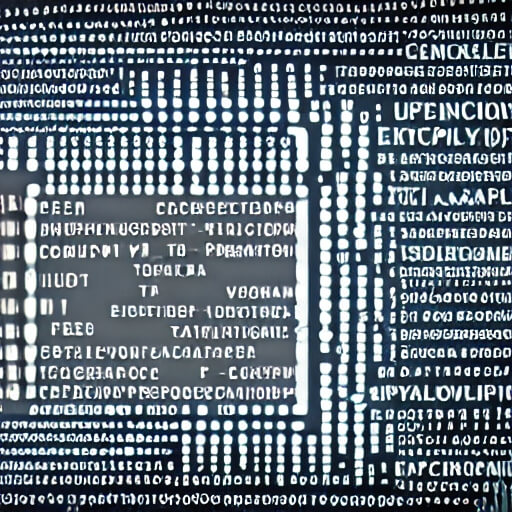Understanding the Role of Encryption in UCaaS Security

February 19, 2024

Unified Communications as a Service (UCaaS) is turning heads in the business world. This versatile platform seamlessly brings together everything from video conferencing to instant messaging under one roof, making working together easier than ever. But there's a catch. This digital blessing is also a magnet for cyber threats. That's why encryption, a major part of UCaaS security, is extremely important. In simple words, it's a secret code that keeps our conversations secure from unwanted eyes. Technology is a double-edged sword - it opens up new ways for us to do business but also makes us an easy target for hackers. Due to this reason, many companies need to maintain strict compliance guidelines (like HIPAA, for example). That's why PanTerra invests so heavily in encryption as one of our methods of protecting your communication.
Through this article, we will explore the intriguing and intricate world of encryption. Further, we will delve into its profound significance in UCaaS security, especially for small businesses. So, let's discover together how encryption protects our business data from unauthorized access.
Understanding the Essentials: What is Encryption?

Encryption is a key part of keeping your business's digital information safe. So, what is encryption?
Think about it like this. Encryption is a way to scramble your business data or information into a special code. Only people who are allowed to see it can unlock and understand this. It's like having a locked box (the scrambled data) and a unique key (the encryption key) - Both work together to keep your important business data safe and secure.
Are you pondering, isn't this similar to password protection?
In an overarching view, yes. Nevertheless, encryption is a much more complex and secure process. While password protection merely sets a boundary for user access, encryption transforms the data into an unreadable, virtually inaccessible format. Let's imagine that an unauthorized user somehow bypasses the password, the encrypted data will still appear as an array of nonsensical symbols without the correct key.
We must carefully distinguish between encryption and encoding. Whereas encoding is designed to ensure that complex traditional information can be effectively stored or transmitted, encryption's sole purpose is to protect information from unauthorized access or alteration.
Encryption isn’t a new concept, either. Its roots can be traced back to ancient Greece, where the Spartans utilized a transposition cipher called the Scytale for transmitting sensitive military information. Nowadays, though, encryption technology is far more sophisticated, creating robust barriers of defense against cyber threats.
Two main types of encryption are used in the digital sphere: symmetric and asymmetric. Symmetric encryption, akin to a traditional lock and key mechanism, requires a singular key to lock, unlock, and access the desired content.
Acknowledging the simplicity of symmetric encryption, you might question: isn't this methodology susceptible to prying eyes? Yes, it is, and that's precisely why asymmetric encryption was brought to the fore.
Here, a pair of keys is used where one is public (for encryption), and the other is private (for decryption), akin to a high-tech safe deposit box. Only the person with the private key can decrypt the information, thereby maintaining integrity and confidentiality. Yet, as the level of cyber threats increases exponentially, merely relying on asymmetric encryption may not be sufficient. That’s where other pivotal encryption techniques, such as public-key cryptography and advanced sharing protocols, join the battle. Now, the question arises: "Can encryption alone shoulder the responsibility of guarding the fortress of small businesses from unauthorized access?" While encryption is extraordinarily potent, it should not be treated as a stand-alone solution. A well-rounded security strategy mandates multiple layers of defense, and encryption undoubtedly is a crucial piece of that protective shield. Understanding the importance of encryption in UCaaS security gives businesses an edge in identifying their strengths and weaknesses.
The Need for Encryption in UCaaS
UCaaS, or Unified Communications as a Service, has rapidly ascended to become an indispensable tool in the operational framework of small businesses. With its unrivaled ability to integrate voice, video, and messaging data into a single, user-friendly platform, its sheer adoption worldwide is unsurprising. But have you ever stopped to ponder about the delicate nature of the data managed by UCaaS? From sensitive business negotiations to privileged client interactions, precious information is incessantly coursing through these digital vessels.
The lurking dangers and threats in UCaaS are far from imaginary: insidious data breaches, illicit interception of communications, and more menacing tactics are constant perils in the digital labyrinth. So, what defensive measures can we incorporate to fortify this crucial information? Amidst the intricate universe of cybersecurity, the secret weapon is a sturdy fortress known as encryption and a unified communication solution offered by PanTerra. What, however, sets encryption apart as a non-negotiable defense mechanism in the UCaaS security protocol? Allow us to explore its critical contribution to shielding small businesses and their invaluable data.
Encryption: The Powerful Shield in UCaaS Security
%20platform.png?width=1200&height=1200&name=PanTerra%20Secures%20your%20data%20with%20robust%20security%20measures%20through%20our%20Unified%20Communications%20as%20a%20Service%20(UCaaS)%20platform.png)
Encryption, at its core, transforms plaintext information into an unreadable format through the use of algorithms and cipher keys, rendering it gibberish to anyone who does not possess the specific decryption key. Isn't it remarkable how a series of complex codes can serve as a nearly impenetrable shield against unauthorized access? Yes, your hunch is accurate: Encryption isn't just a safety net - it's a game-changer. It serves as the quintessential backbone of UCaaS security, creating a solid bulwark against data breaches. By encrypting data, small businesses can safeguard their critical information from unauthorized scrutiny. This isn't solely about fortifying data; it's about maintaining the business integrity itself.
Why Encryption Matters to Small Businesses
With the rising prominence of cloud-based solutions like UCaaS, small businesses, efficient though they are, can often be prime targets for cyber threats. The hidden beauty of encryption here is that it lends an air of invisibility to their business data. Lost in the vast, seemingly infinite cloud data space, encrypted data blends in, becoming undecipherable babble to any ill-intentioned intruder. Yet, you may wonder, does this cryptographic cloak really serve a purpose beyond the metaphorical hide-and-seek in the cloud? The answer is a resounding yes!
This clandestine technique, encryption, does more than just conceal. It transforms readable data into incomprehensible code. Unless armed with a specific decryption key, the code remains undecipherable. Hence, even in the event of a data breach, the stolen information would be rendered useless.
The Mechanism of Data Protection

Encryption is more than just disguising data; it's a key component of data protection. Encrypting data is like placing our most sensitive business information in a highly secure digital vault. This vault is protected by complex encryption keys, known only to authorized users and updated regularly to prevent unauthorized access. Although this advanced security might seem complex, it's actually a practical and essential part of today's UCaaS security. By using encryption technology, businesses can achieve a strong level of security, effectively safeguarding their important information from cyber threats and unauthorized access.
Embracing encryption as part of your UCaaS strategy isn't merely about adopting a technology; it's an investment in your business's longevity. While the mechanics may seem daunting at first, the principle is simple: encryption equals protection. It's a defensive envelope encasing your data, a barrier against unauthorized access, and a fortification of your small business's future. So, are you prepared to equip your UCaaS with this armor?
How Encryption Works in UCaaS: A Deep Dive
In UCaaS, encryption ensures privacy by transforming readable information, known as plaintext, into an unreadable cipher. Now, you might be wondering how this intricate technical process unfolds within the realms of UCaaS security.
Primarily, during the critical phase of communication transmission, UCaaS solutions harness the power of Transport Layer Security (TLS) and Secure Real-time Transport Protocol (SRTP) for robust data encryption. TLS serves as a shield for the signaling, ensuring that the highly sensitive communication setup remains secure, while SRTP takes over the task of encrypting the audio and video content, thereby securing the data in transit.
When you start a UCaaS call or share important information, robust encryption protocols immediately begin working to secure your data. They transform your data into a complex, coded format that's difficult to decipher without the correct key. Without the possession of the right digital key, unauthorized individuals encounter unreadable gibberish instead of your highly valuable data. Hence, encryption essentially becomes an invisible vault, protecting the seamless flow of your proprietary information. But just how reliable is this fortified, encrypted protection within the UCaaS world?
If set up accurately, encryption masterfully conceals interpretable data, morphing it into a labyrinth-like string of codes that present an enormously arduous task for any unauthorized entity trying to breach. The scenario is akin to being thrown into a game of decryption without a cipher - can you fathom the complexity of deciphering an alien language sans any translation guide? That's tantamount to solving the riddle of encrypted data without the digital key—veritably an uphill task.
Indeed, the sheer intelligence of encryption lies in its steadfast security posture. This digital vault is no child's play, and cracking it open without possessing the precise decryption key would render the data securely ensconced. The enigmatic allure of the locked data remains tantalizingly elusive for unauthorized parties. Accommodating no room for ambiguity, encryption proves to be a cornerstone in the world of UCaaS, vowing to keep your sensitive business discussions and the confidentiality of shared files under unperturbed sanctity.
Challenges of Implementing Encryption in UCaaS
Despite the indisputable security benefits of encryption, instituting it within the confines of the UCaaS environment is not without challenges. These difficulties often manifest as performance disruptions, intricate complexities intrinsic to the encryption process, and the delicate dance of striking a balance between seamless usability and robust UCaaS security.
- Performance is a critical cornerstone of any communication system, and UCaaS (Unified Communications as a Service) displays this attribute emphatically. Introducing encryption into the scenario can occasionally cause a minor hitch in communication speeds, given the resource-intensive nature of data encryption and decryption. Nonetheless, let's not forget that this momentary disruption is a small downside, given the exceptional data protection that encryption brings to the table. Isn't it agreeable that the security of your small business's confidential information should be held in the highest esteem?
- Moving on, we have the multifaceted task of encryption. To individuals new to this field or even some technically savvy individuals, encryption might appear as a challenging and intricate process. Rest assured, the vast majority of UCaaS providers prioritize designing user-friendly interfaces, and this often entails veiling the complexity of back-end encryption from the typical user. The real challenge resides in developing an encryption system that excels in its security function while still being accessible to users.
- Lastly, there's the obstacle of maintaining an equilibrium between accessibility and solid security. Overzealous security measures have the potential to make the user interface less intuitive, obstructing workflow and thus lowering productivity. Conversely, an easy-to-navigate system crippled by lackluster security leaves your data exposed to potential threats. The optimum scenario, naturally, is to find a happy medium between these two standpoints, forging a user-friendly UCaaS platform fortified with strict security protocols.
Best Practices for Encryption in UCaaS
Some of the best practices that can be used for encryption in Ucaas are:
- First, understand that one size doesn't fit all when it comes to encryption. Individual business requirements will dictate the type and extent of encryption needed. What type of data are you handling? Is it confidential and subject to strict compliance regulations? These are important considerations to make in the sphere of UCaaS security.
- Adopting an encryption standard is a step in the right direction. Standards such as Advanced Encryption Standard (AES), which is widely recognized and utilized by the U.S. government, would be a sensible choice for any small business invested in solid data security. The use of such standards will ensure that companies benefit from their future process and work.
- In addition, remember that encryption isn't a one-time task. You must actively manage encryption keys – updating, storing, and retiring them when necessary. This active management means that even if an adversary manages to crack a single key, they cannot decrypt everything. It's like having several barriers to cross instead of just one. Doesn't that seem like a robust strategy for UCaaS data protection?
- Finally, keep yourself abreast of the latest trends and advancements in encryption technologies and industry best practices. Remember, your UCaaS provider is your partner in this journey. Don't hesitate to question them on their security protocols, encryption strategies, and standards of operation. After all, data protection isn't a luxury; it’s a necessity in the digital age!
The Future of Encryption in UCaaS: Emerging Trends and Technologies
One of the tantalizing features of technology is its ceaseless evolution - and encryption in the context of UCaaS stands as a prime example. As we gaze into the prophetic prism of the future, we envisage exciting developments that could further revolutionize the way we safeguard our small businesses.
First up, there's Quantum encryption. In stark contrast with traditional classical encryption, quantum encryption leans heavily on the intricate principles of quantum mechanics, offering a substantially heightened level of security. Why such confidence, you ask? Here's the secret: in the quantum realm, any attempt to intercept or eavesdrop on the encrypted data disrupts the delicate quantum state, eliciting immediate detection. Imagine this! With quantum encryption, your UCaaS could have its unique watchdog, making any unauthorized access attempts glaringly obvious.
In the realm of UCaaS security, AI in encryption is an emerging trend that extends beyond being a buzzword – it promises immense utility. The intelligent prowess of AI algorithms can be utilized to scrutinize and predict potential cyber threats, augment key management, and even modify the encryption strength corresponding to the risk level of data. Doesn't that posit the impression of an ally with superpowers bolstering your security infrastructure?
Predictions on How Encryption Will Evolve in the Context of UCaaS
In the forthcoming phase, we can anticipate an even more profound integration of encryption into the lifeblood of UCaaS, accelerated by an evolving cyber threat landscape and surging privacy regulations. Organizations are predicted to adopt a more detailed method to encryption, not only safeguarding the storage and transmission of data, but also the very computations of the data itself.
In addition, we may witness the democratization of encryption technologies, opening doors for small businesses to access advanced encryption techniques that, until now, were primarily accessible to larger organizations. The overarching motto will be - comprehensive data protection, regardless of the size of the business.
Ultimately, there will likely be a paradigm shift from encryption as an additional security measure to encryption as an innate feature of communication services. And that, dear reader, makes the future of encryption in UCaaS a compelling saga of innovation and security!
As we tread further into the heart of this digital era, the requirement for employing secure communication practices rises to the forefront. Encryption isn't merely an adjunct, but a critical element of the security arsenal, a resilient shield that maintains the purity of business data. Rugged encryption practices aren't a choice but a necessity - these are the strong walls that guard against the relentless onslaught of cyber threats. Irrespective of scale, from compact startups to giant, multi-national corporations, every entity harnessing the power of UCaaS must put a premium on implementing and consistently upgrading formidable encryption protocols. Beyond this, the ceaseless evolution and progress of encryption methods command everyone involved to evaluate, ponder, and modify.
.jpg?width=500&height=500&name=Are%20you%20Getting%20a%20Good%20Deal%20(1).jpg)
Comments